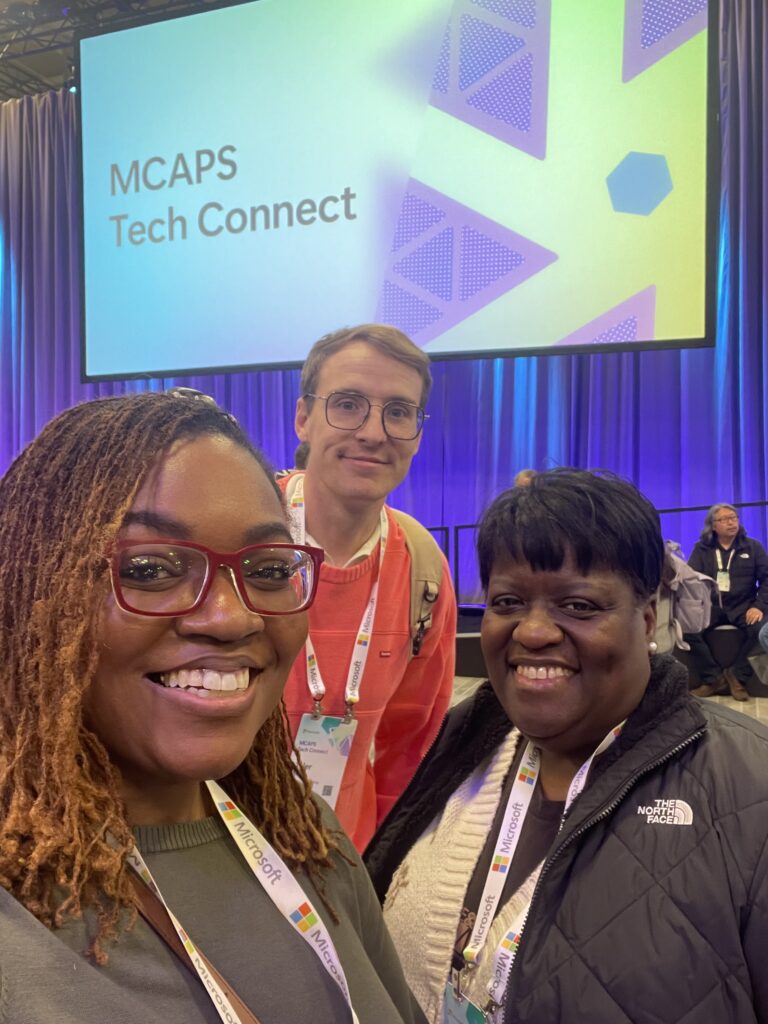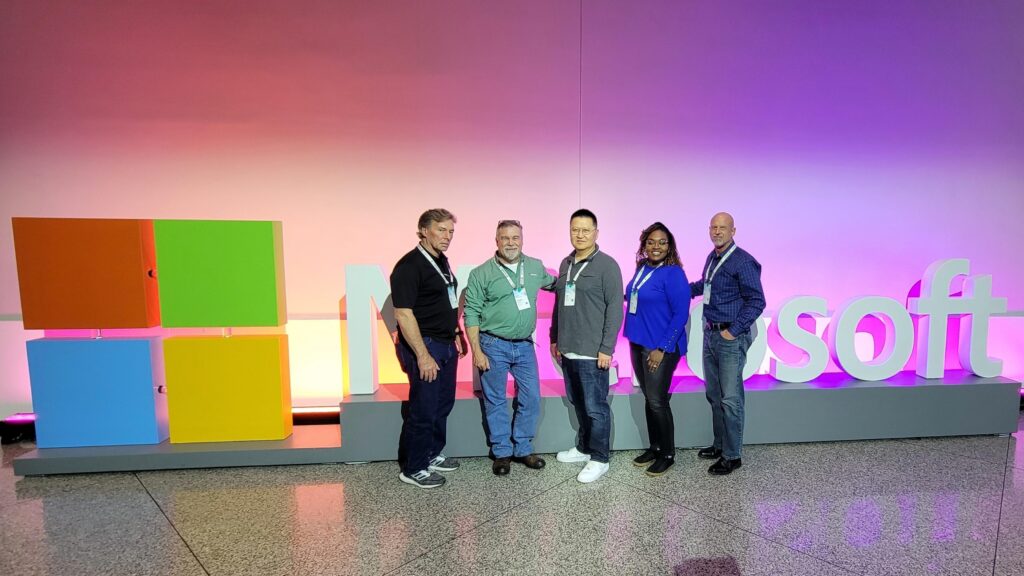Army to Cloud Solution Architect
Latameka L., also known as Meka, has been involved with the Microsoft Software and Systems Academy (MSSA) since winter 2018 when she joined as a Cybersecurity candidate. Today Meka is a Senior Cloud Solution Architect supporting Federal agencies in Copilot, Exchange, Security and Compliance. She has been with Microsoft for 6 years.
I graduated from MSSA in the spring of 2019 while retiring from the United States Army after 20 years and 24 days of service. My experience with the MSSA program was truly amazing. At the time classes were still held in person, and I drove nearly 100 miles each day for four months. It was worth every mile.
Why I mentor
My inspiration to become an MSSA mentor stemmed from the profound impact the program had on my own transition from military to civilian life. The mentors I encountered during my time in MSSA were instrumental in guiding me through a challenging period. They were insightful, supportive, and genuine. They visited our class, met with us outside of class, and some even stayed in touch after graduation. They illuminated a pathway that often seemed endless, and I appreciate each of them tremendously.
Their dedication and genuine support made a lasting impression on me. So once I’d ‘made it’ and started my own career with Microsoft, I wanted to offer the same level of support and guidance to others who were navigating similar transitions.
Encouraging veterans to recognize their value
From cohort to cohort, mentees start off nervous and even a bit anxious. It makes sense—they’re embarking on a journey with a lot of unknown factors, many of which are out of their control.

But it’s important that veterans know the value they bring to the table. It’s incredible to hear the adaptability and problem-solving skills that veterans develop during their service, which are invaluable in the civilian workforce. They should be proud and confident in their abilities.
My MSSA mentors encouraged me to continue being myself. As simple as that may sound, when you’re transitioning to a civilian career for the first time it can be tempting to think, “maybe I should be more [fill in the blank].” No! I was reminded to be authentically me, to highlight my strengths, and to acknowledge my weaknesses while developing strategies to succeed despite them.
My mentoring style—developing ownership and authenticity
Understanding core technologies, like cloud computing, cybersecurity, software development and Copilot/AI—and how they interconnect—is crucial. But combining the technical expertise mentees learn in MSSA with professional skills is what equips veterans to navigate the complexities of the modern workforce.
I encourage my mentees to recognize their strengths and communicate them with confidence. I stress the importance of skills like communication, teamwork, and networking. These skills are paramount for career growth and can often be the differentiating factor in job interviews and workplace success.
Over the course of a cohort, I get to see my mentees’ growth both technically and professionally. They develop clarity for what they really want to do and that they may have to adjust their strategy, network more, or even go to career events to get results. By the conclusion of their MSSA training, they’ve created a habit of focusing on what they can control and the effort they put forth.
How mentoring veterans has impacted me
Mentoring has had an immense impact on me both personally and professionally. On a personal level, it has given me a sense of fulfillment and purpose. Knowing that I can make a difference in someone’s life is deeply gratifying.
Serving as a MSSA mentor, I’m awed by my mentees’ resilience and the incredible challenges they’ve overcome. It’s given me even greater respect for the sacrifices made by fellow brothers and sisters who served, and for the strength they possess.
Every mentee brings their own experience, perspective, and insights that push me beyond my life experience, and encourage me to consider a new way of thinking, and extend grace to others even more.
Professionally, mentoring has enhanced my leadership and communication skills. I am always ready to listen and learn from others, which has helped me to continue to grow. It has taught me how to more effectively guide and support others and to pivot when needed. Essentially, meeting people where they are.
The approach can be slightly different from how I would tackle a conversation or task while serving. But the concept is the same: Mission first, people always.
While mentoring is about serving and assisting others, I have gained so much along the way. I learn something new from each cohort as they share their experiences and perspectives. I continue to learn about new resources and tools from my fellow mentors who serve alongside me.
These moments have deepened my sense of purpose and sharpened my leadership skills in ways that directly impact how I show up in my role every day. Mentoring has reminded me that growth is a two-way street, and I’m grateful for every conversation, challenge, and success I’ve shared with my mentees. My journey as a MSSA mentor has been a blessing and I cherish every part of it.

